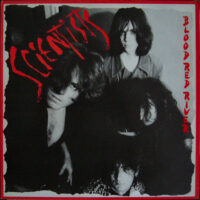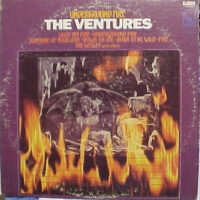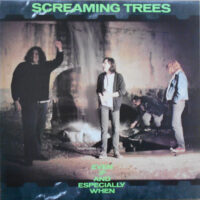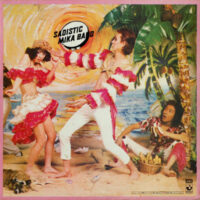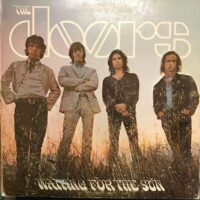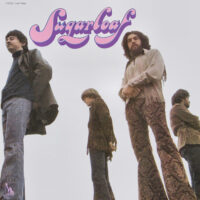
The Feelies’ major-label debut found them with a slightly more in-your-face production, and, against conventional wisdom, they actually benefitted from it. Their previous album, 1986’s The Good Earth, though beautiful, sounds like it was recorded with moss-covered mics (R.E.M.’s Peter Buck co-produced).
Only Life, the New Jersey rock group’s third album, is a veritable guitar feast. Glenn Mercer and Bill Million deftly twine their electric and acoustic riffs around primal, mantric rock structures. These musicians don’t invent new guitar lexicons; rather, they create subtle dialects on the Velvet Underground’s ur language, which they “speak” as fluently as any band in the USA.
To be blunt, the Feelies display just two kinds of songs on Only Life: the pastoral, meditative chime, à la “Sweet Jane” (side one) and the accelerating chug à la “Foggy Notion” (side two), with occasional forays into whammy-barred spaciness. But within any given song there’s an omnipresent tension between those two styles. Only Life actually thrives on its sameness. As with the Wedding Present, the Feelies sound better as the tempo of their music increases. And they ingeniously sequenced Only Life so that each song gets subtly and progressively faster. Also worth noting: the high-velocity jangle train that is “Away” would segue well into Meat Puppets’ “Away” from Up On The Sun. Pure coincidence or…?
The Feelies’ music always has been devoid of raunch, even on their most manic LP, 1980’s Crazy Rhythms. There’s something monkish about their devotion to rock the VU way. They found what they do best and honed it to perfection on Only Life. Mercer’s affectless, Lou Reed-like voice heightens the sense of sexlessness on these 10 songs. It’s a comforting voice, a kindly whisper or humble exhortation imparting vague, clipped phrases such as “Got a ways to go/So much to know.” Paradoxically, his unexpressive voice profoundly moves you.
In a decision that’s very on-the-nose, the Feelies cover “What Goes On” (one of my favorite songs ever) with blinding speed, but unfortunately add little to the Velvets’ original. Well, who could, really? But it made Lou richer, and that’s what really counts.
Ultimately, the music on Only Life is a romp through the grassy hills of childhood and an urgent shuffle through the subway stations of adulthood. It stands as one of the greatest rock records of the ’80s. (Bar/None did the last vinyl reissue of Only Life in 2016. It’s time for another one.) -Buckley Mayfield
Located in Seattle’s Fremont neighborhood, Jive Time is always looking to buy your unwanted records (provided they are in good condition) or offer credit for trade. We also buy record collections.


